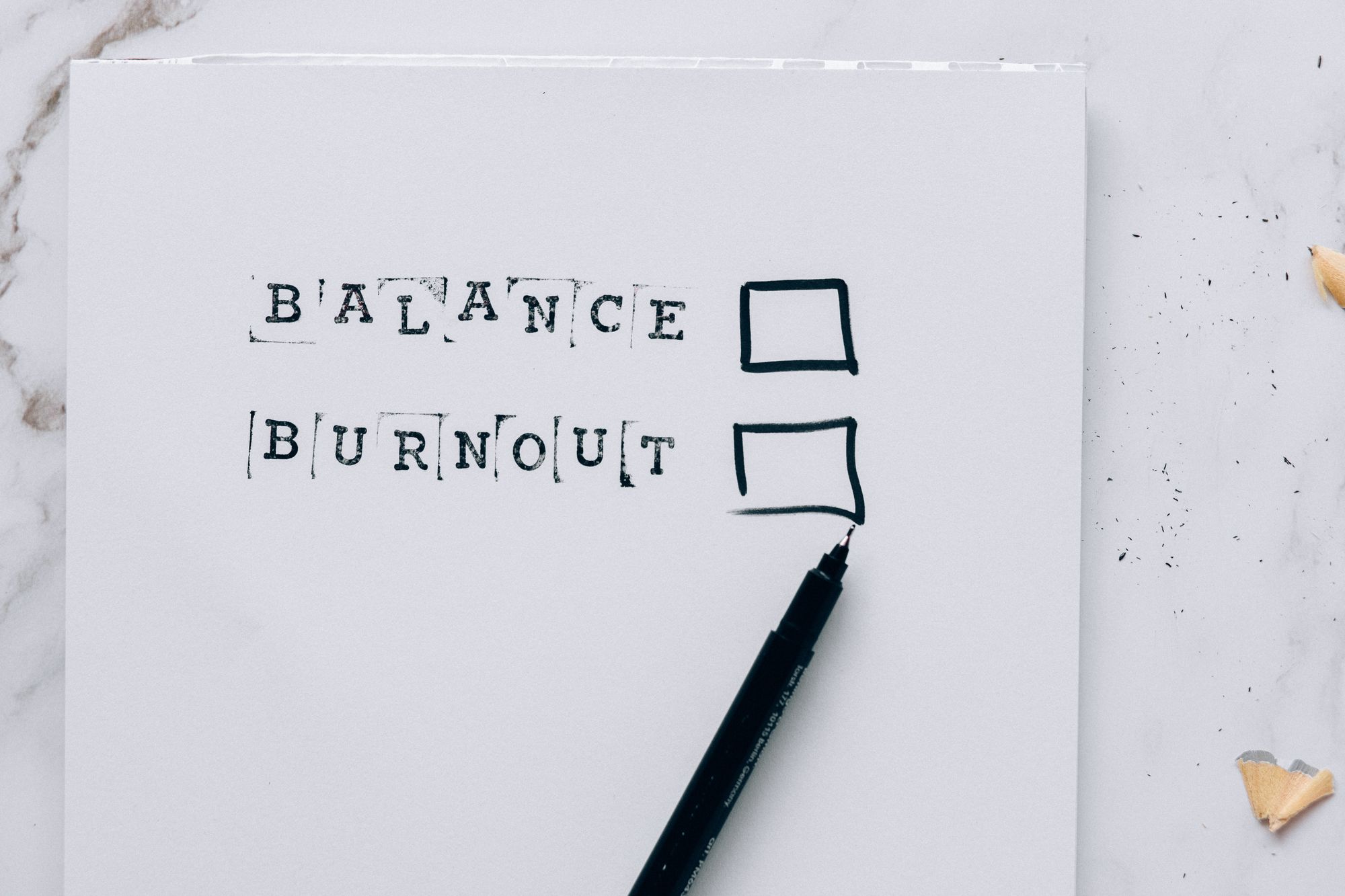Workplace Stress and Depression: Signs, Causes, and Management
A guide to how workplace stress starts and builds up, and how you can address it before it get worse.

Shortly after joining a large multinational firm, Dev found himself swept up in the endless demands of his new job. He rarely left his work desk at home and was always busy taking calls and working, even on weekends. Ignoring warning signs like aching muscles, headaches, and restless sleep, Dev told himself that things would improve once he met his deadlines and finished his project.
Two months later, his workload had only increased. Unable to concentrate, he spent more time at his desk and made more mistakes, which landed him in trouble and increased workplace stress to a great extent. Dev was overwhelmed with feelings of discouragement and felt that everybody was better off than him. He took breaks, but they didn’t help.
When his manager enquired about Dev’s falling productivity, he was unable to explain things properly. So his manager asked him to work harder. His irritability and mood swings also affected his relationship with his wife. Soon, Dev stopped going out and meeting people; he lost all his interests and hobbies and preferred staying in bed all day. He almost had a breakdown at work as well.

What do you think Dev might be experiencing here?
Before answering that question, let's ask another one. Why do we work? Possibly to maintain our personal and social status; to earn well and buy nice things; to engage ourselves productively; and to have self-confidence, self-esteem, and a sense of self-worth by contributing to society or the common good.
However, maintaining this balance between your work and personal life can be a rollercoaster ride. If unchecked, pressure can lead to stress, and when you are unable to manage this workplace stress, it can lead to workplace depression.
Proven tips to replace workplace negativity with positivity.
According to The National Institute for Occupational Safety and Health, job stress can be defined as the harmful physical and emotional responses when the job requirements do not match the worker’s capabilities, resources, or needs. A report published by ADP’s Global Workforce in 2020 found that seven in 10 Indian workers were experiencing stress at least once during the working week regularly.
Let us not confuse the concept of workplace stress with workplace challenges. Challenges energise us psychologically and physically, motivating us to learn new skills and master our jobs. When you face a challenge, you feel excited. Thus, challenges are vital for a productive and healthy working environment. It’s what people mean when they say: “A little bit of stress is good for you.”

However, for Dev, the situation was different. The challenge had turned into job demands that Dev could not meet due to feelings of stress, which greatly influenced his emotional needs, setting him up for depression. In short, what Dev experienced were signs and symptoms of workplace stress, and later depression.
Physiological reasons explaining workplace stress:
The term General Adaptation Syndrome (GAS) refers to a three-stage model for describing the physiological changes in the body during stress.
● Alarm Stage: This is the initial stage of the body when it is under stress. It is a natural reaction where your body prepares you to fight the stress or escape the pressure. During this stage, your heart rate increases, the adrenal gland releases the stress hormone (cortisol), and you receive a boost of energy (adrenaline), which heightens your ability to stand your ground or run away. Stress management is in AUTO mode by now.
Tips for HRs to track employee performance.
● Resistance Stage: After the alarm stage, your body begins to repair itself, provided the stressful situation has ended. The body releases less cortisol, and your blood pressure and heart rate normalise. Although your body enters the recovery state, it continues to remain on high alert for a while. If the stress appears to have been resolved, your body repairs itself until the vitals reach a pre-stress state.
But if not, the body continues to be on high alert, and eventually learns to cope with increased stress. Your blood pressure stays elevated, and the body will secrete cortisol continuously. You might assume that you’ve managed the stress well, but your body’s physical response might be acting up. If the resistance stage continues for too long without any pauses, it leads to an exhaustion state.
Signs to look out for during resistance state: Irritability, frustration, low levels of concentration.
● Exhaustion Stage: This is when your body has reached chronic or prolonged stress. Struggling with anxiety, especially in this last state, can drain all your physical, emotional, and mental energy to the point where your body gives up and has no strength to fight stress. You might feel hopeless and want to give up. At this stage, workplace stress has won the battle.
Signs to look out for during exhaustion state: Fatigue, burnout, anxiety, and depression.

Five major work-related stressors and how to address them
1. Conflict: One of the primary reasons companies have conflict is a “blame culture.” Everybody in this kind of environment is afraid of negative consequences, and therefore, nobody will admit or accept their mistakes. Instead of learning from their mistakes, workers blame each other. This hostility creates a toxic working environment which in turn can make simple tasks stressful.
Solution: Attempting to resolve these conflicts in the presence of HR is a good start. However, if the problem keeps recurring, it may require changes at the management level, which may or may not be under your control. If you are finding workplace stress management difficult, you may want to consider shifting your role at the company or moving on to a new organisation. This is a practical workplace stress management technique.
2. Unrealistic Deadlines: Having unrealistic expectations is a prevalent stress factor in the workplace. When there is a mismatch between what we expect and what is possible, it leads to high stress. High stress can damage work quality and may cause some people to compromise on work ethics.
Solution: Communicating these concerns with your higher-ups could help you address the problem and manage workplace stress better. Try to understand what your superior is expecting from you, and if you feel the deadlines are too tight, bring it up with your superior and do not wait until the deadline has passed. Try to raise your concerns early, or it might sound like you are making excuses.
3. Poor compensation or benefits: Money is a common source of stress for many workers. When compensation packages aren’t satisfactory, it undermines the hard work you put in and kills morale. You can take several steps to make sure you’re satisfied with your compensation package.

Solution: One of the best ways to address this matter is to directly ask for a raise at an appropriate time, such as a performance review or employee evaluation. Be prepared to explain what you have done for the company to demonstrate your achievements.
Be confident while having this conversation and believe in yourself. This workplace stress management tip will literally reap great dividends!
4. No growth opportunities: It can be highly frustrating to find out that you have very little chance to advance in your current position, either because your job role is essential or because there aren’t enough openings for more senior roles. Knowing that all your hard work won’t help you move up can cause stress.
Solution: Instead of thinking about a promotion as a new job title or position, sit down with your supervisor and ask if you can take on some new responsibilities. These discussions will allow you to take on some complex and different duties that help you continue to update and learn more. Keep in mind that taking on some new responsibilities will make you consistent, reliable, and remarkable. This workplace stress management technique is widely favoured by driven and ambitious professionals.
5. Work-Life Balance: Work-related demands can interfere with personal and family life, putting a strain on relationships outside the workplace. Extending work for long hours, demanding and inflexible work schedules, work interfering with home/personal life, excessive travel time, etc., can all be significant stressors.
Solution: Optimise your work time. Make a to-do list every morning and set realistic goals for the day. Try to take some time for specific tasks. Big projects can look very intimidating; hence break them down into smaller and more achievable goals. Take appropriate breaks when you feel overwhelmed. Doing so will reduce the chances of getting burned out.
Manage Workplace Stress with Manah Wellness
Workplace depression and stress are connected and are bi-directional. Stress can cause depression, and depression can cause anxiety, and both can make each other worse. Identifying the symptoms, asking for help, and practising regular self-care habits are great ways to have a better relationship with your work.
At Manah Wellness, we provide innovative tools and professional support to dynamic startups, emerging businesses, and trusted brands. Browse our vast range of services and resources to support wellbeing and growth:
Wellbeing Ambassador Training Programme for Corporates
Wellbeing challenges for high-performance teams
Virtual onboarding best practices for 2022
Employee motivation strategies to maintain team morale




